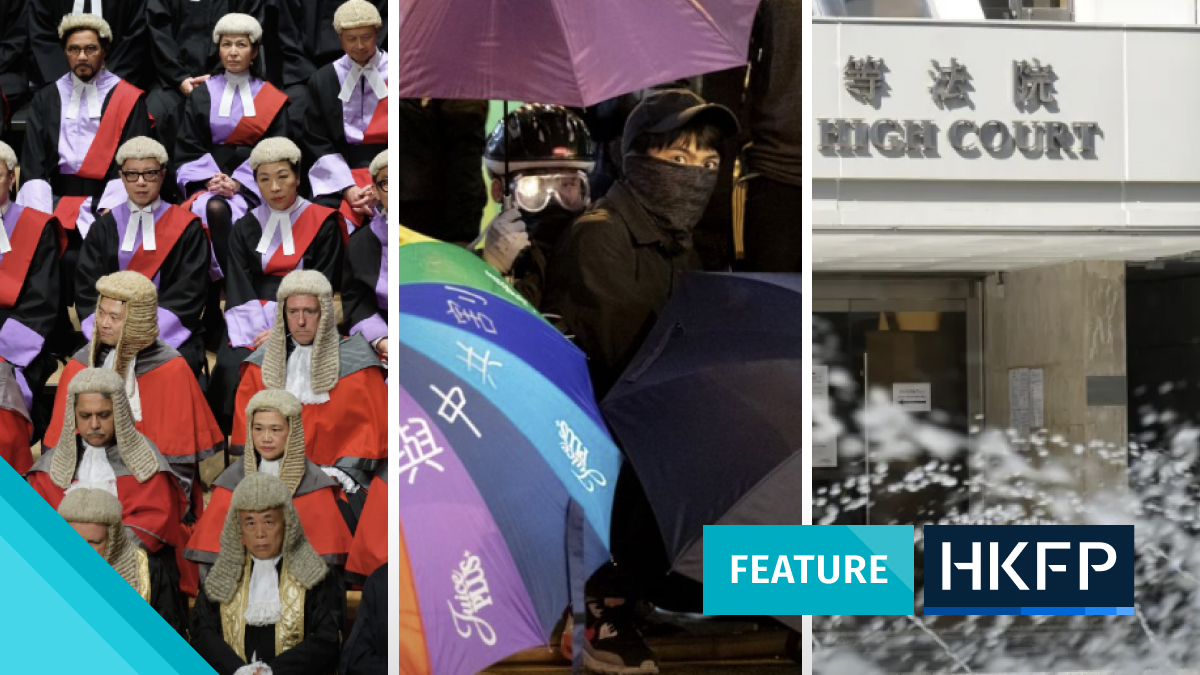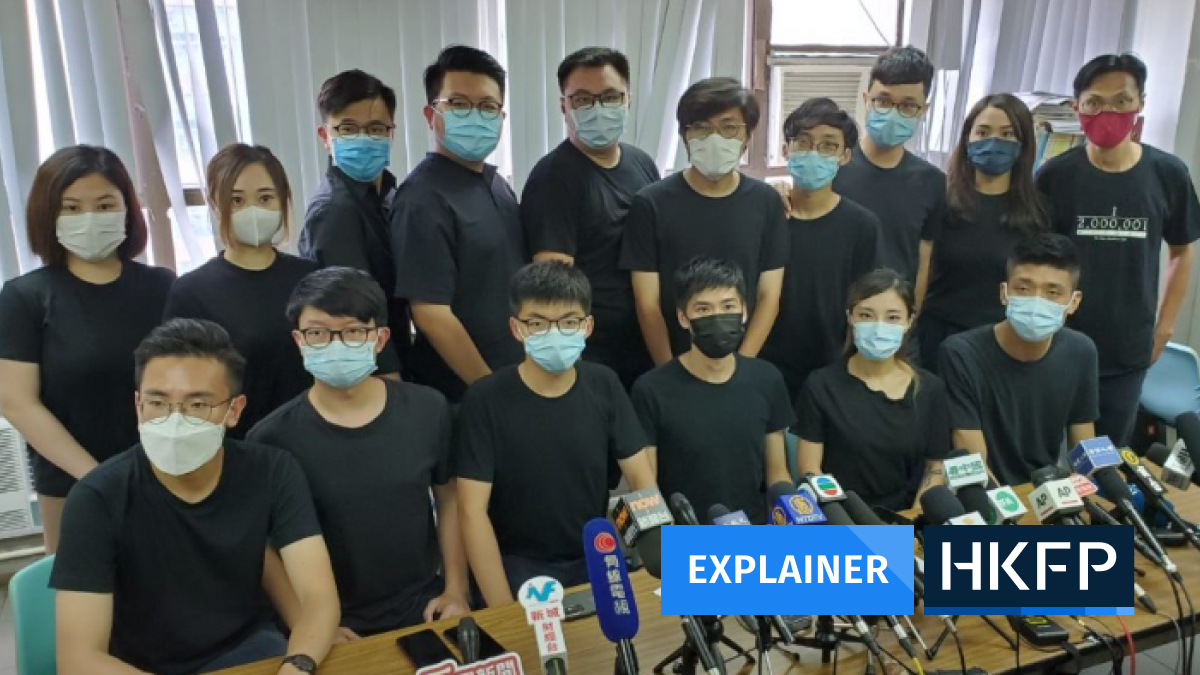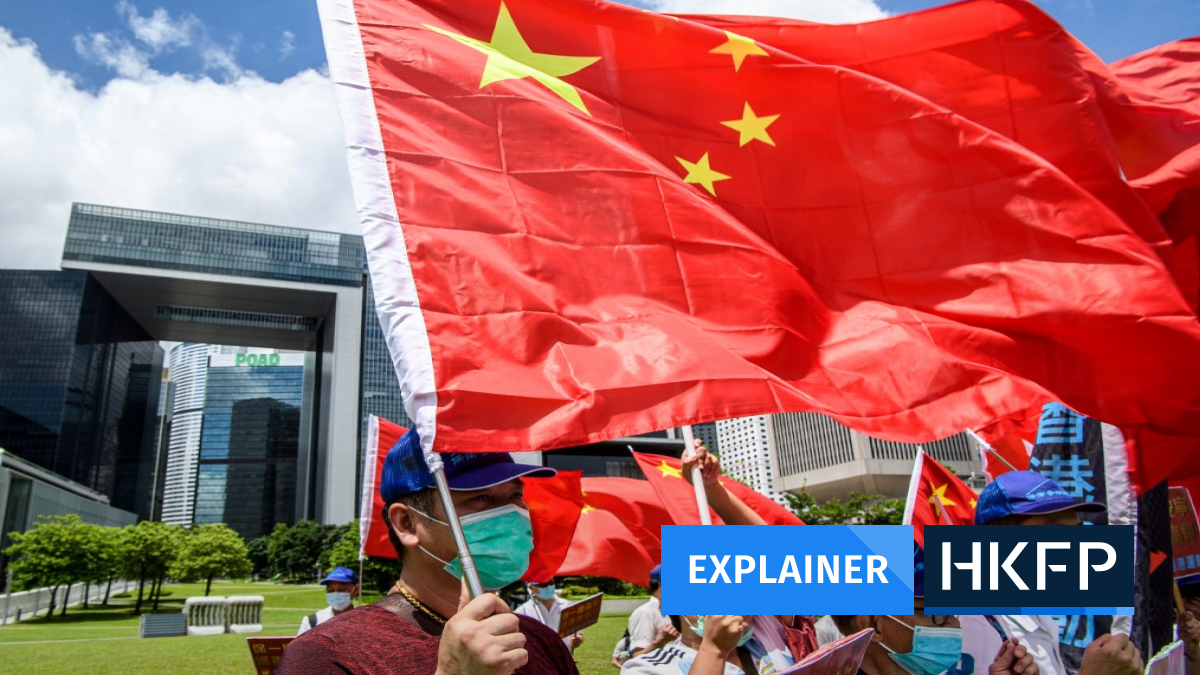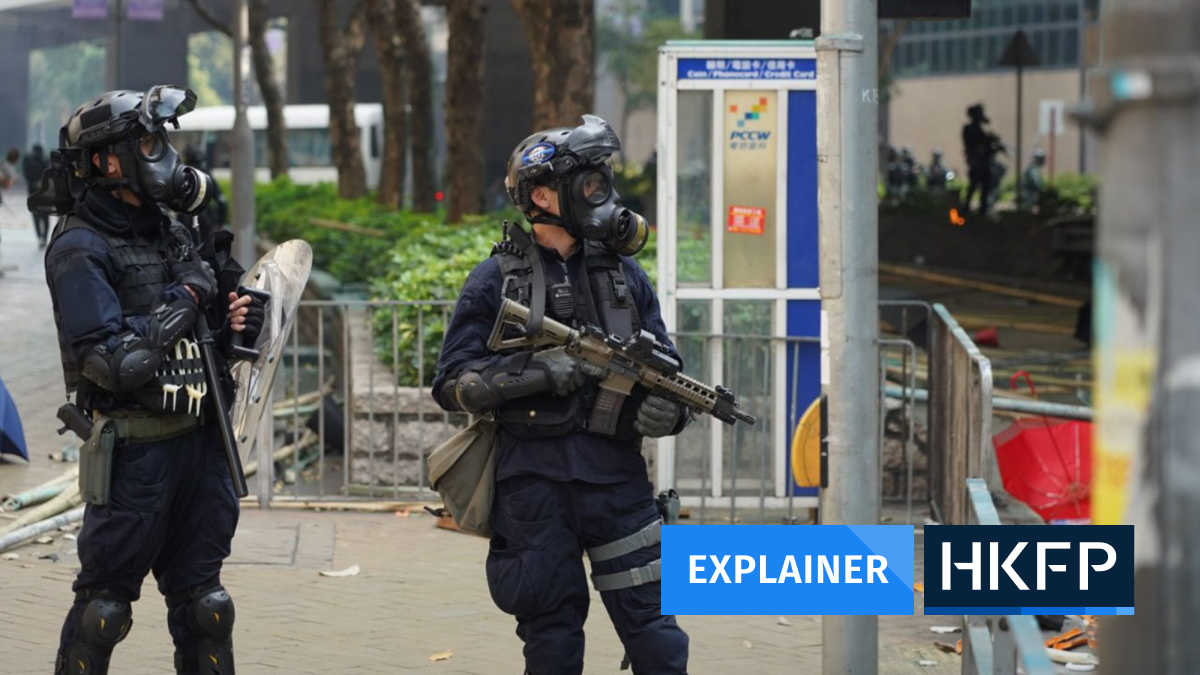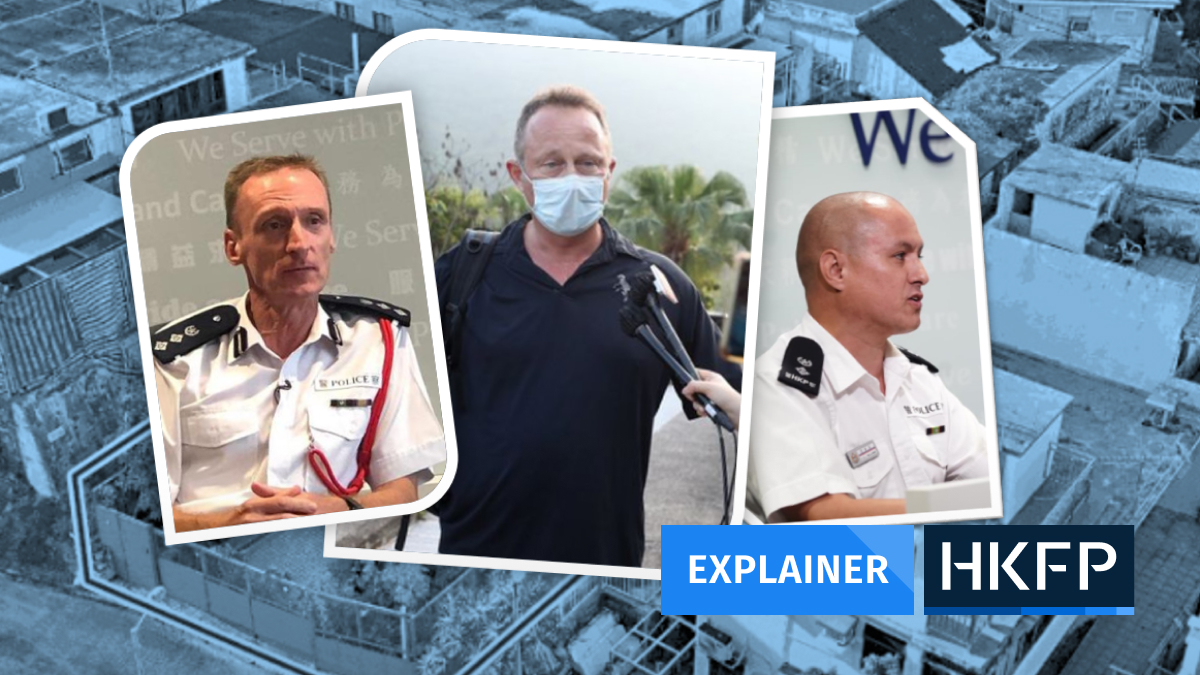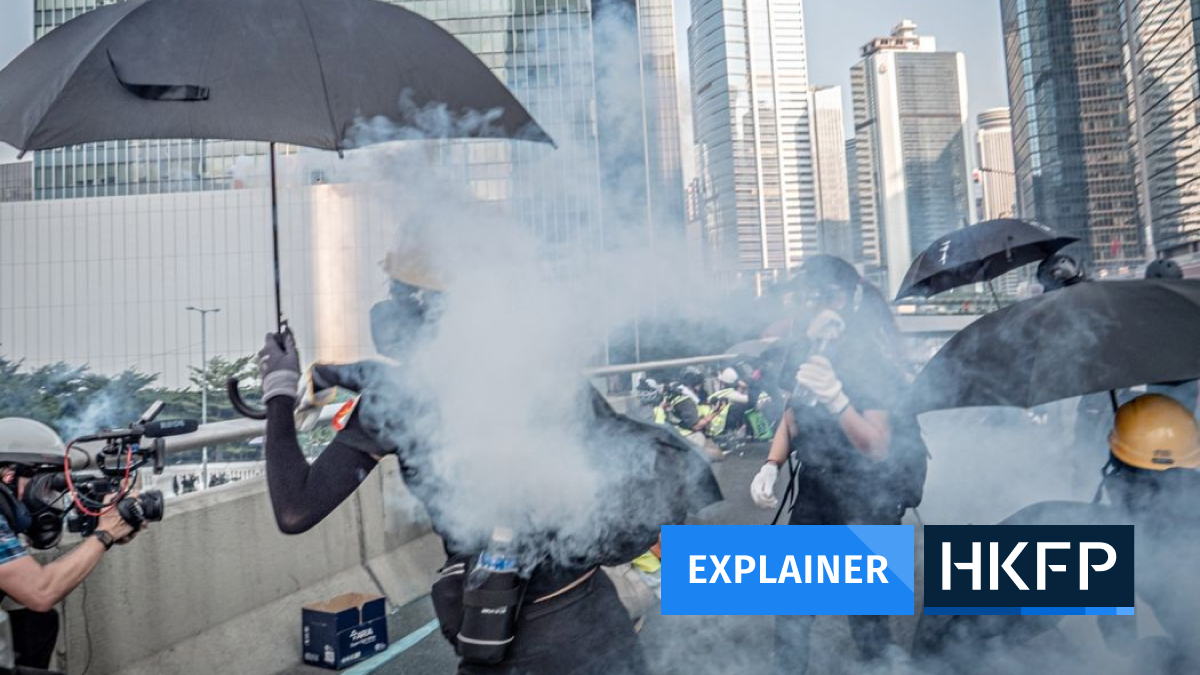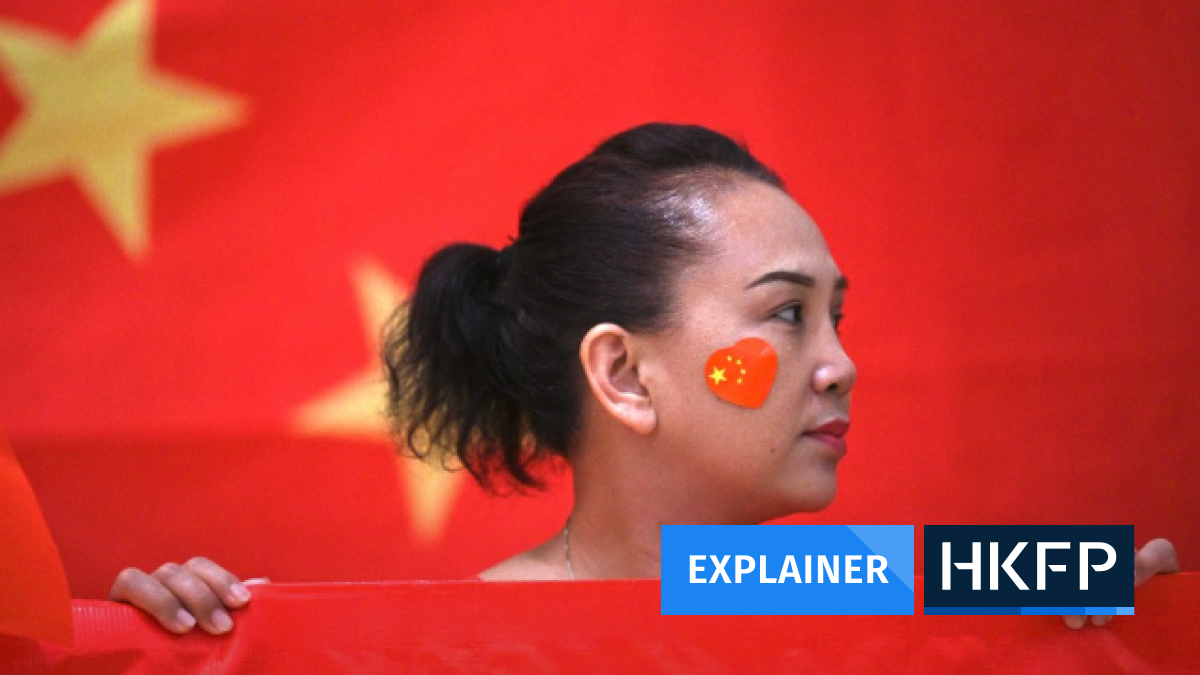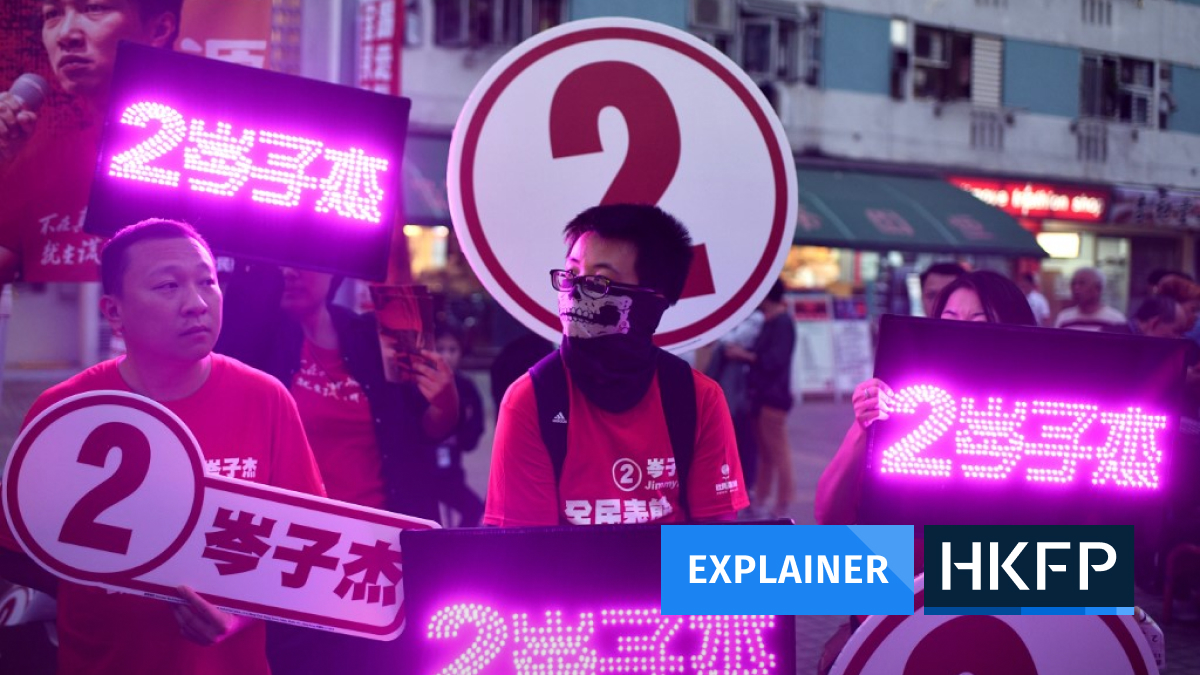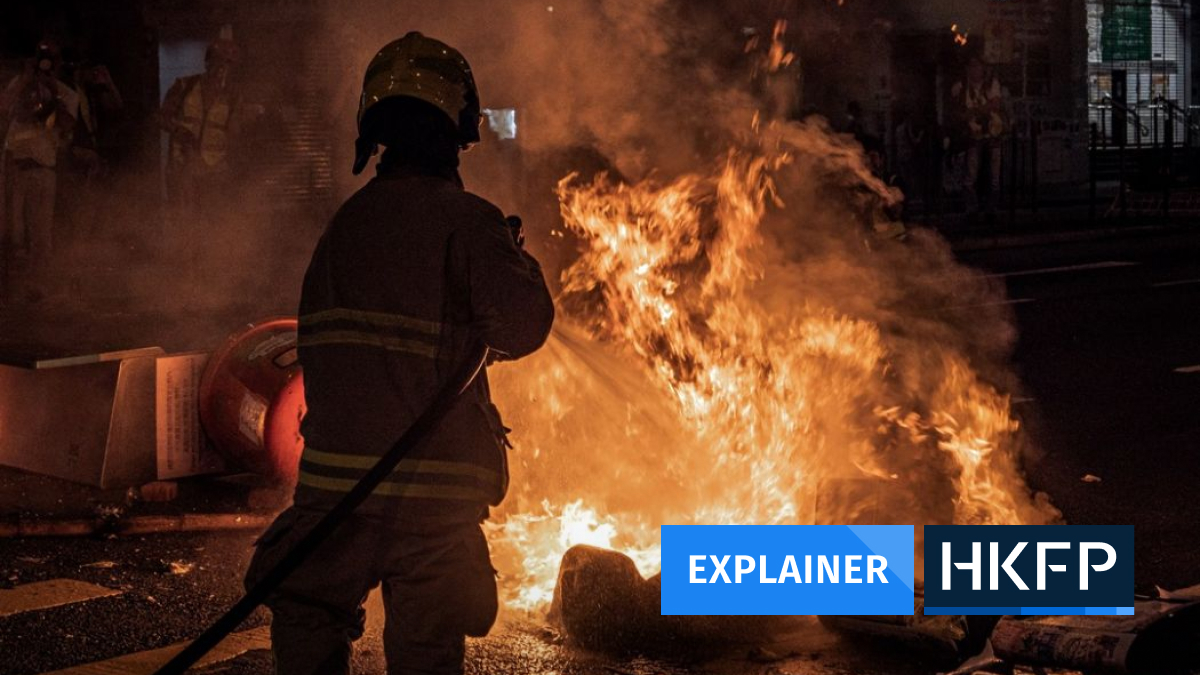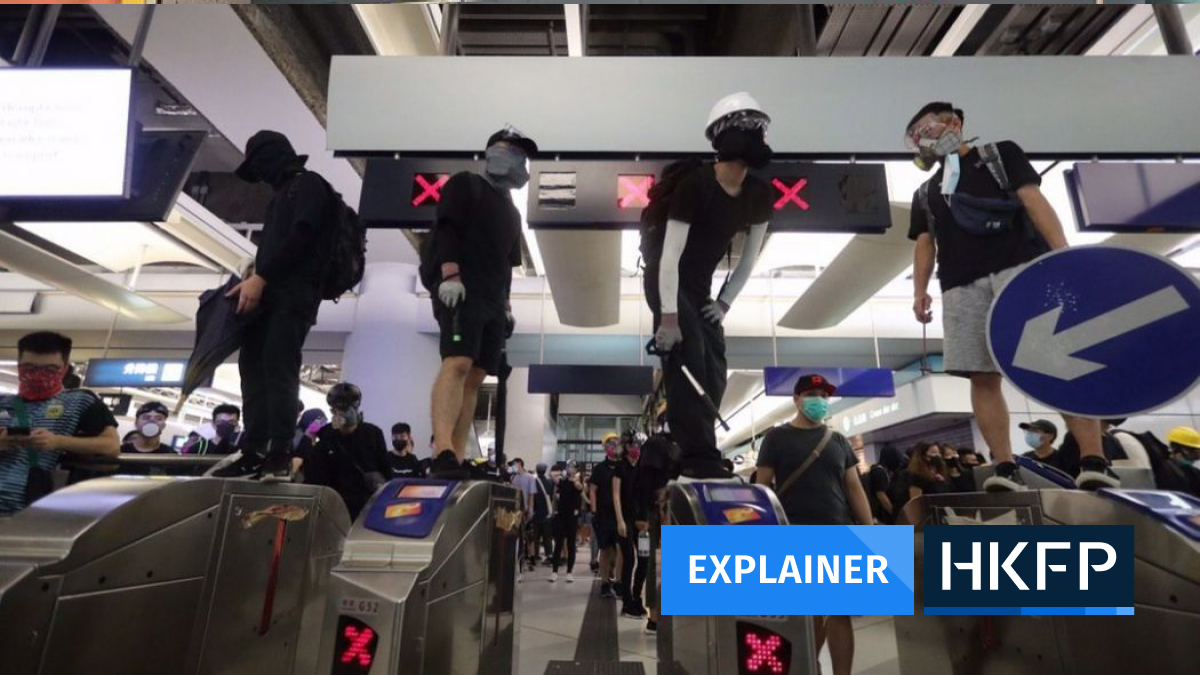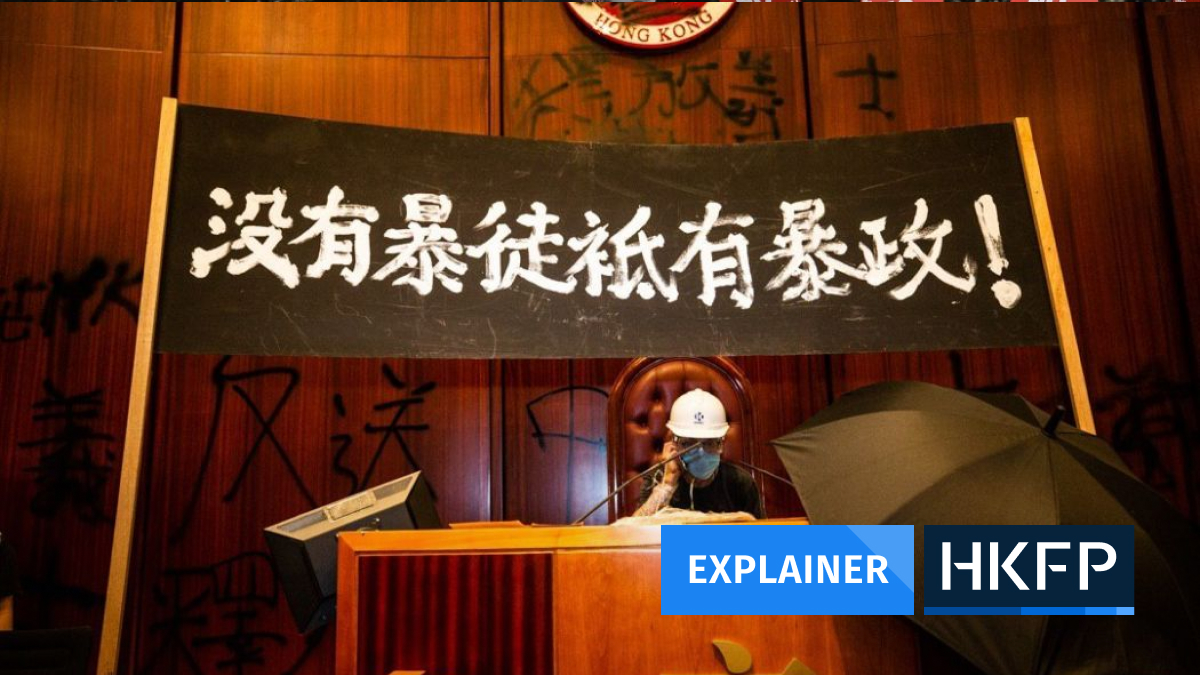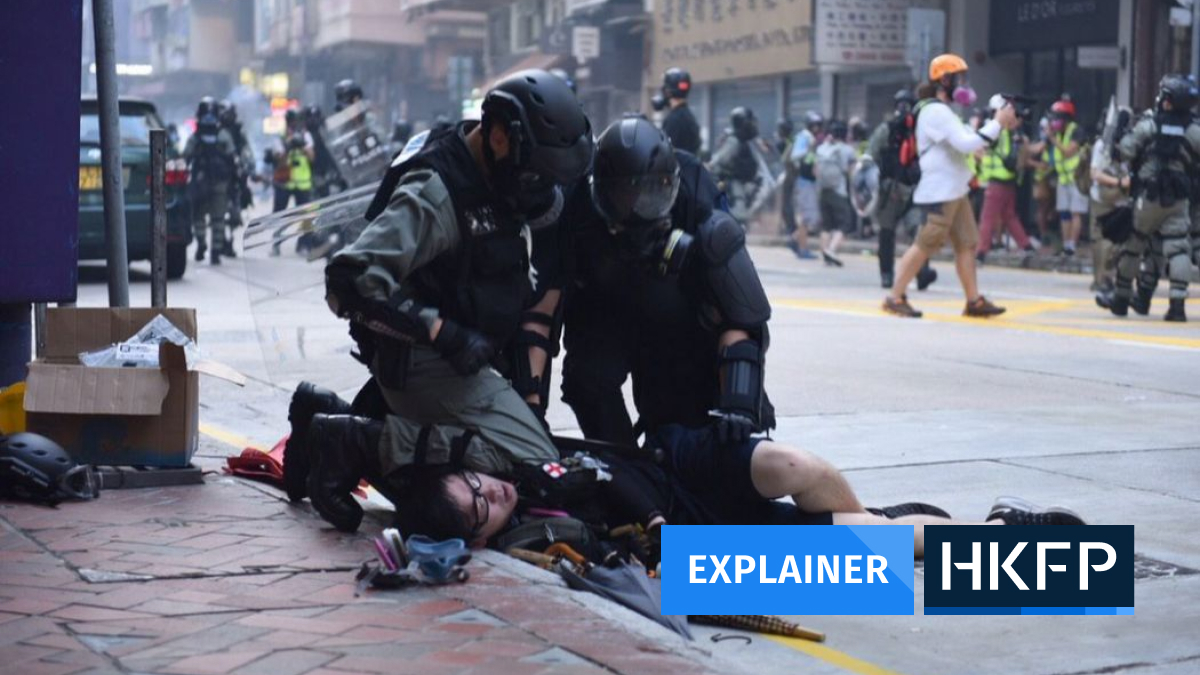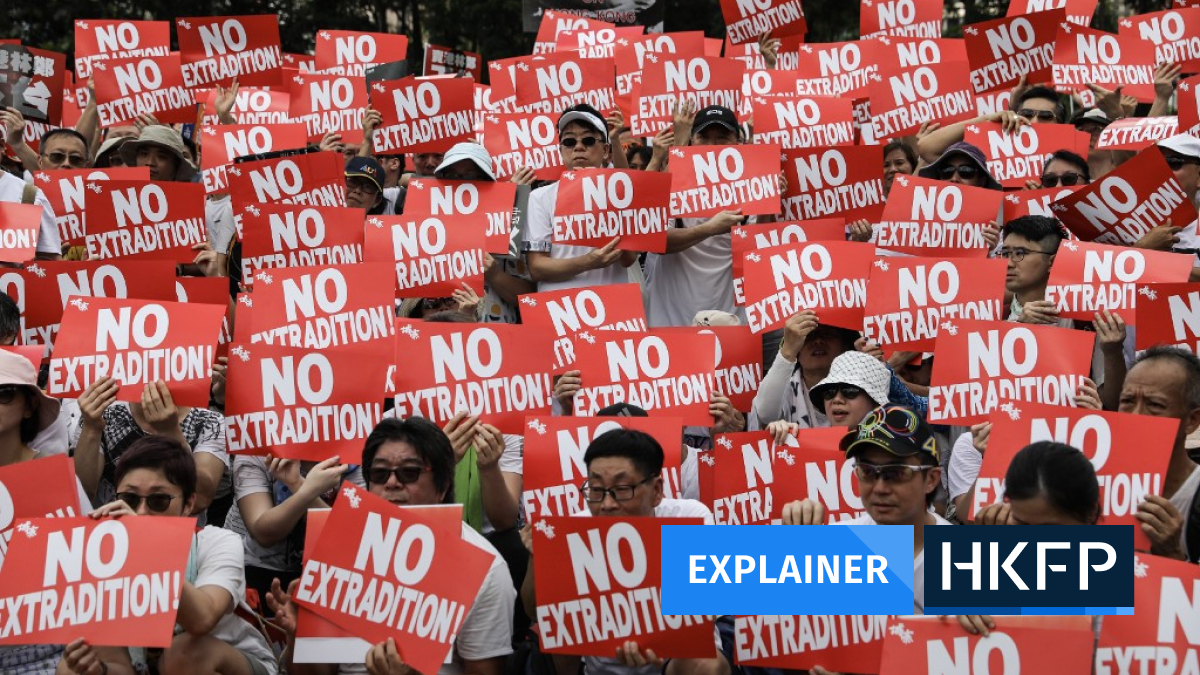Protests erupted in June 2019 across Hong Kong over a now-axed extradition bill. They escalated into sometimes violent displays of dissent against police behaviour, amid calls for democracy and anger over Beijing’s encroachment.
Data analysis: How Hong Kong convicted 200 people for rioting during the 2019 protests and unrest
As the fourth anniversary of the 2019 pro-democracy protests nears, the city’s courts have yet to finish handling all cases relating to the citywide unrest. Police told HKFP that 2,899 of the 10,279 people arrested between June 9, 2019, and October 31, 2022, have been prosecuted, with 765 charged with rioting. Those convicted face a…
Shifting Narratives: From ‘violent attack’ to ‘gang fight’ – How the official account of the Yuen Long mob attack changed
Part of HKFP’s Shifting Narratives series. Exactly two years ago on July 21, over 100 rod-wielding men – with connections to triad members – stormed the Yuen Long MTR station, indiscriminately attacking civilians. Among the 45 people injured were journalists, protesters, commuters and Democratic Party lawmaker Lam Cheuk-ting. Several other beatings took place in the…
Explainer: Hong Kong’s national security crackdown – month 1
Once a vague spectre, national security legislation became a reality in Hong Kong last month when – in less than six weeks – Beijing imposed a law granting authorities sweeping powers to clamp down on dissent. Drafted behind closed doors without local legislative input, the law ostensibly targets acts in the city deemed to threaten…
Hong Kong democrat primaries in full: Young ‘localist resistance camp’ come out on top
Hong Kong’s pro-democracy camp held primary elections last weekend ahead of the Legislative Council elections on September 6. Results of the primaries, together with polls, will be consolidated into a list of recommended candidates in order to achieve the goal of winning over 35 seats in the legislature – a majority. The primaries involved five…
Explainer: 10 things to know about Hong Kong’s national security law – new crimes, procedures and agencies
On June 30, China’s top legislature enacted Hong Kong’s national security law. Its text was revealed to the public late at night – only in Chinese. First announced in May, the unprecedented criminal legislation was drafted in Beijing, rapidly tabled behind closed doors, and bypassed any local legislative oversight. The city’s Secretary for Justice admitted…
Explainer: From ‘five demands’ to ‘independence’ – the evolution of Hong Kong’s protest slogans
What began as a handful of familiar chants against an extradition agreement with China escalated into calls for democratic reform and, eventually, independence. HKFP looks at how a year-long stream of protest slogans evolved to reflect changing protester attitudes. The near-ubiquitous rallying cry “liberate Hong Kong; the revolution of our times” was first coined in…
Explainer: The hidden differences between Hong Kong police rifles
The infamous AR15 is a regular sight at Hong Kong’s pro-democracy protests, appearing sporadically from last April, before being deployed en masse during the police siege of the Hong Kong Polytechnic University, and routinely ever since. There is much misunderstanding about this rifle, and its use by the Hong Kong Police Force (HKPF). Largely this…
Explainer: Hong Kong police top brass embroiled in property scandals
The Hong Kong police force has come under public scrutiny after three senior officers were alleged to have broken land and housing laws. The controversy surrounded Rupert Dover, a British-born officer who joined the Hong Kong police force in 1988. Dover became a controversial figure last June for his highly-visible role as a commander in…
Explainer: Why China-made tear gas is more dangerous
It is no secret that the Chinese produced CS (tear gas) munitions recently employed by the Hong Kong police are more dangerous than the munitions produced in the West and employed at the beginning of the democracy protests. But what is less known is exactly why this is the case. The real danger of CS…
Explainer: Beijing’s 5-day crackdown on Hong Kong’s opposition during covid-19
With world’s attention focused on the coronavirus pandemic and protesters off the streets, Chinese and Hong Kong authorities stepped up their efforts to crack down on the pro-democracy movement in the semi-autonomous territory. Over a span of just five days, the city saw its legislature, judiciary, legal system and civil society come under threat. HKFP…
Explainer: What can Hong Kong’s democrats do with their new District Council majority?
Hong Kong democrats gained control of 17 out of the city’s 18 district councils after a landslide win in Sunday’s election. The race, held every four years, took place amid months of unrest and pro-democracy demonstrations, and it remains the territory’s only truly democratic election. It was an unprecedented result as – before the opposition captured…
Explainer: Aggressive policing creates rifts in Hong Kong’s civil service, with firefighters caught in fallout
Ever since 2012, when the polling unit at the University of Hong Kong started collecting data, the Fire Services Department (FSD) has always been the city’s most popular disciplined force. Firefighters have been a regular presence on the frontlines of the months-long protest movement, dousing burning barricades, stores and Molotov cocktails. By and large, they…
Explainer: ‘Renovation’, ‘decoration’ and ‘fire magic’ – the businesses targeted by Hong Kong’s hit-and-run protesters
With the Hong Kong protests well into the 18th week, frontline protesters have gone from blocking roads to “hit and run” vandalism. Over the months, the mass demonstrations against the now-scrapped extradition bill have morphed into a wider movement for democracy and against Beijing with little end in sight. But protesters are not simply trashing stores…
Explainer: ‘The Communist Party’s Railway’ – How Hong Kong’s once-respected MTR fell afoul of protesters
Hong Kong’s metro system has long been lauded for its world-class efficiency, affordability and enviable safety record. In the early days of the city’s summer of dissent, sparked by an ill-fated extradition bill, demonstrators would form long, snaking queues for MTR ticket machines and even leave cash for others to buy single journey tickets to…
The Five Demands
Explainer: Hong Kong’s Five Demands – halt the characterisation of protests as ‘riots’
After hundreds of thousands of people marched on June 9, the Hong Kong government decided to go ahead with its extradition law plans despite widespread opposition. Three days later, the Legislative Council was supposed to debate the ill-fated bill. But it never happened, as protesters surrounded the legislature, forcing the meeting to end prematurely. That…
Explainer: Hong Kong’s Five Demands – universal suffrage
The protests that have transformed Hong Kong in 2019 have broadened to become a call for democracy – but it was not always that way. In June, protesters’ fury was mostly directed towards Chief Executive Carrie Lam, the ill-fated extradition bill and the police. It was not until the Civil Human Rights Front (CHRF) –…
Explainer: Hong Kong’s Five Demands – amnesty for all arrested protesters
In order to prevent the Legislative Council debate on the controversial extradition bill on June 12, protesters surrounded the complex and clashed with police. Some threw bottles and metal bars at officers as police responded with tear gas, rubber bullets and sponge grenades. At least 39 people were arrested over clashes on suspicion of rioting,…
Explainer: Hong Kong’s Five Demands – an independent investigation into police behaviour
On June 12, Chief Executive Carrie Lam spoke to reporters about “an issue of major public concern,” which had led her to set up an independent inquiry with wide-reaching powers. “Given the severity of this particular incident… going for a statutory commission with all the powers that I have mentioned is an appropriate approach,” Lam…
Explainer: Hong Kong’s Five Demands – withdrawal of the extradition bill
On October 23, Hong Kong’s security chief John Lee officially withdrew the extradition bill from the legislature – but by then it was too late. What began as opposition to an ill-conceived law had escalated into a citywide pro-democracy movement, with millions taking to the streets over the course of six months. The bill, which was…

